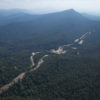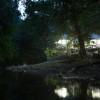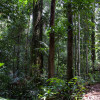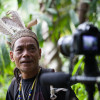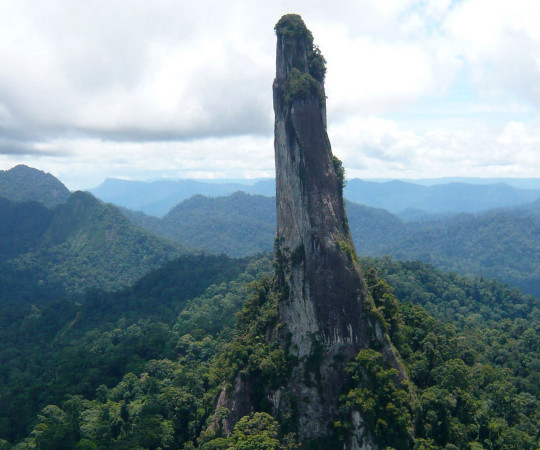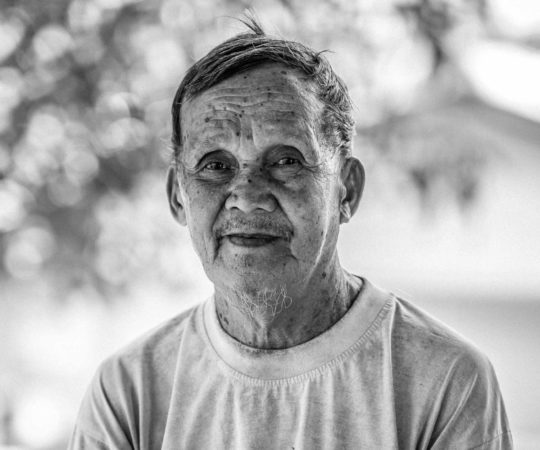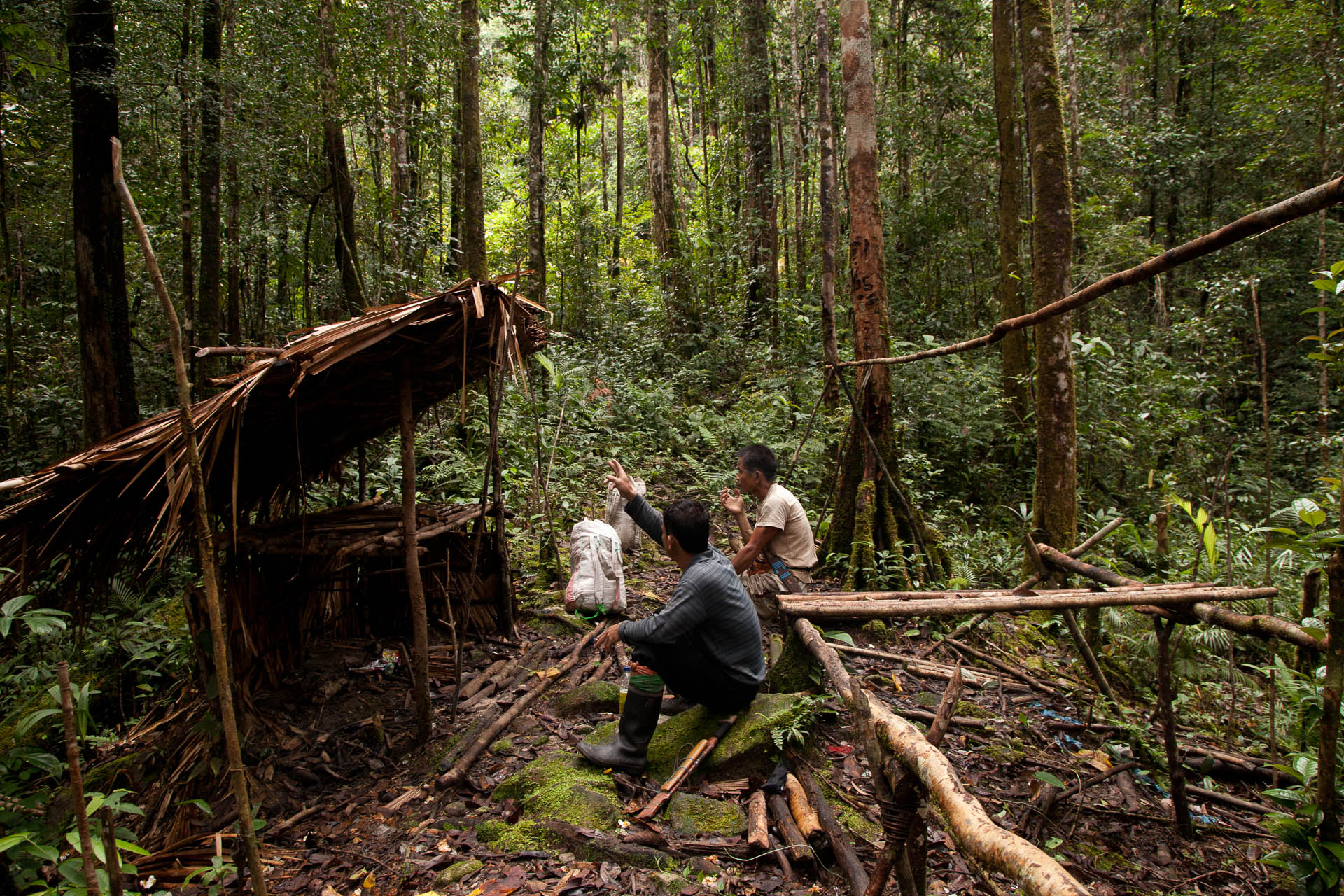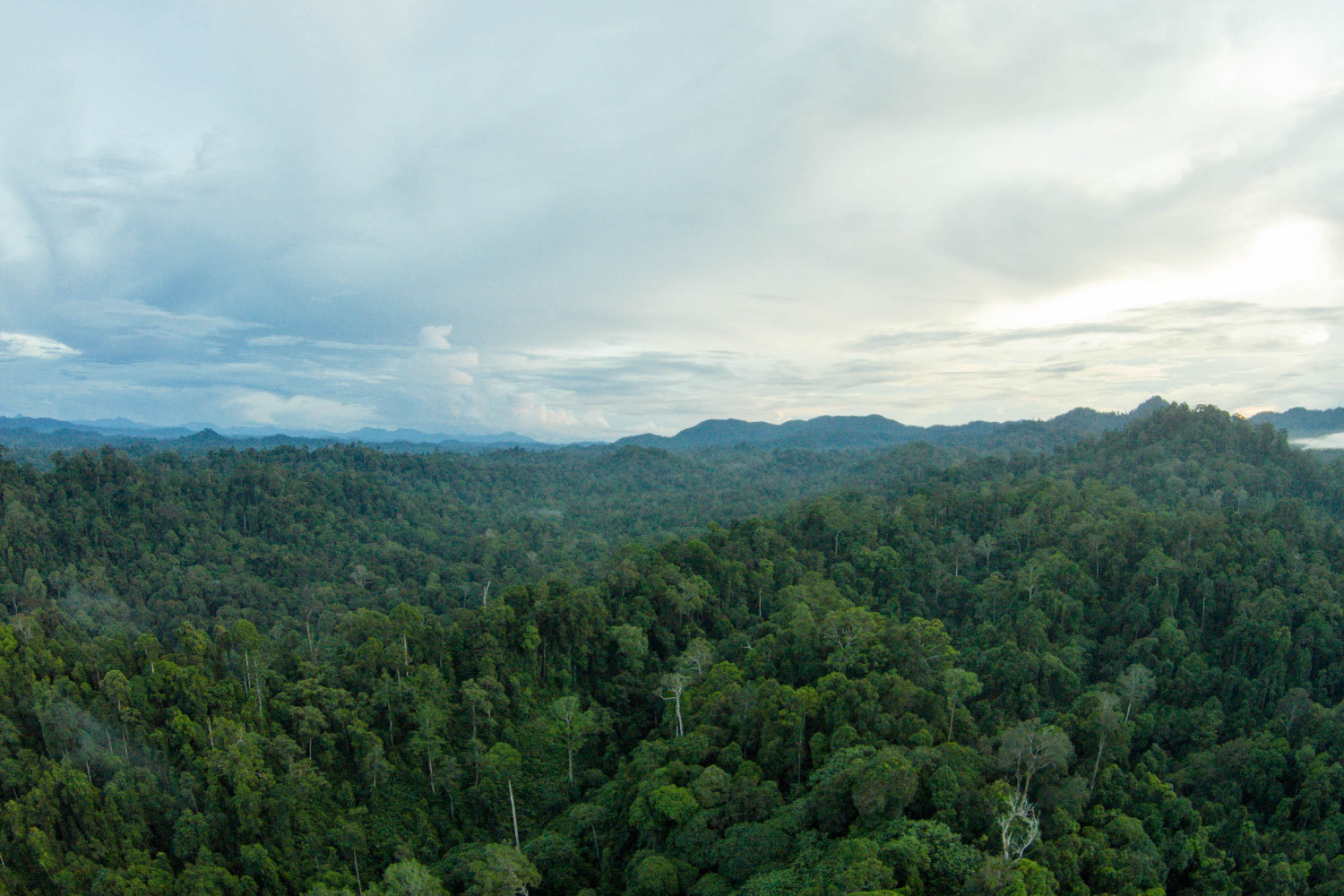
beyond conservation
It’s becoming a bit of a tradition now that the first serious thing I do in the new year is take a large, international group of conservation students into some primary rainforest in Borneo. As traditions go it’s a pretty good: I get to avoid the January weather and work on my tan, spend time in a country and environment that I love and care about, and I get to introduce the next generation of conservationists to this incredible and incredibly threatened place and hopefully sew a few seeds that will last a lifetime. The fact that I get paid is just icing on the cake.
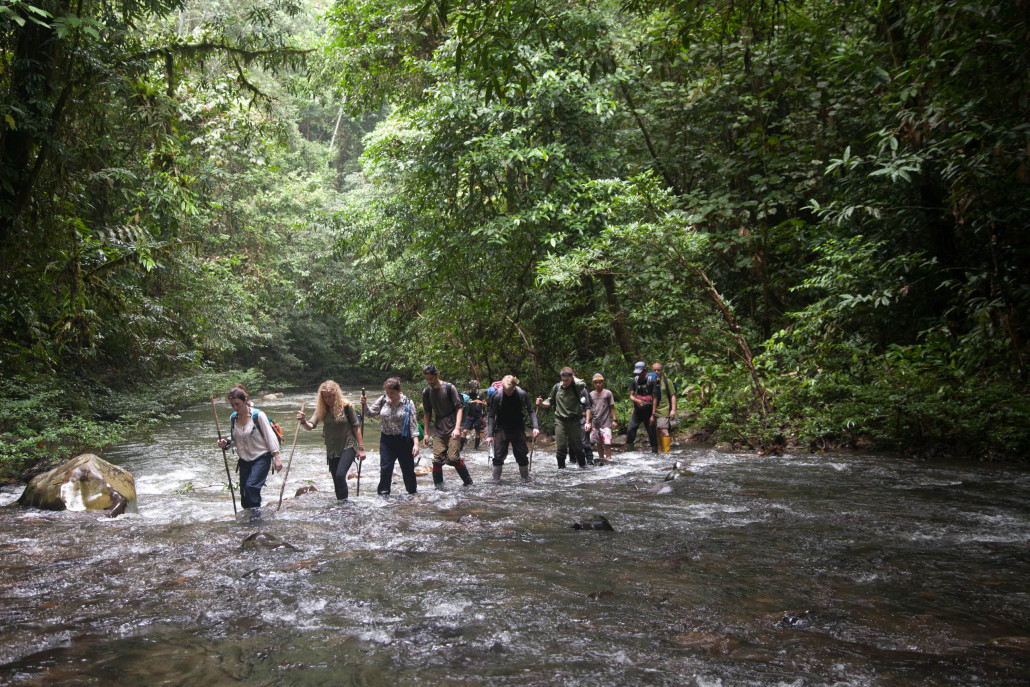
Students from the 2015 field trip crossing a river en route to their camp.
And so it is that I write this from a hotel room in Tarakan, with a group of around 40 university students and staff (and most of their bags) safely here and itching to get into the field. Tarakan is a small island in North Kalimantan, and is our jumping off point for the field trip. Tomorrow morning we’ll travel by speedboat upriver as far as Malinau, before jumping into jeeps and driving to the Dayak village of Long Setulang. From here we’ll travel by foot and small canoe into the rainforest, where we’ll live, spread out between three camps, for the next 7 days.
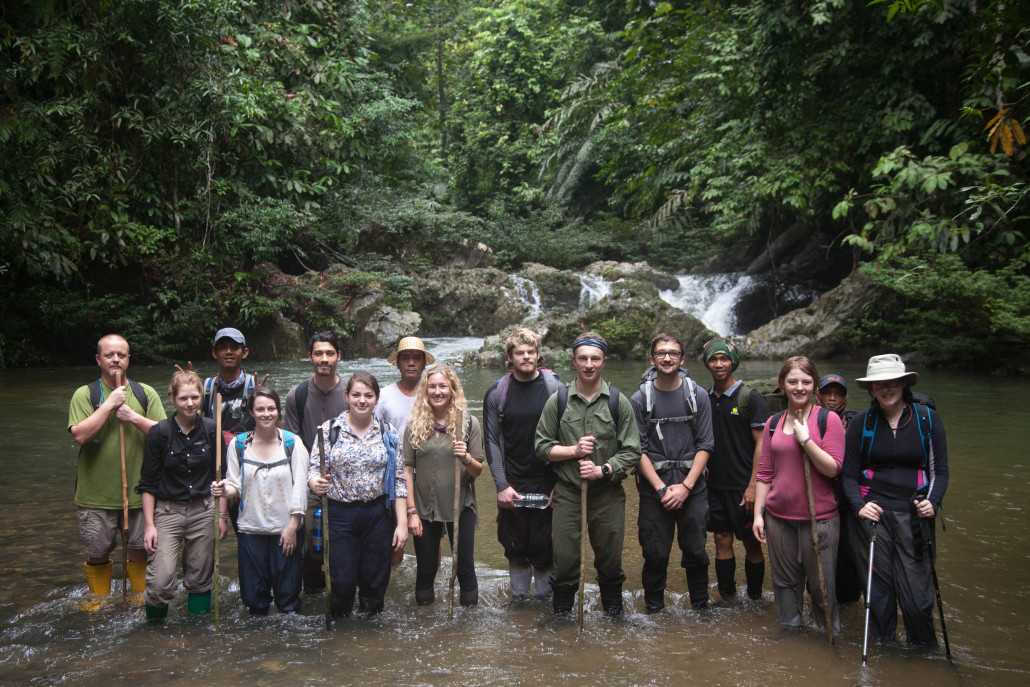
Students from the 2015 field trip pose in front of a waterfall inside the Tane’ Olen
This rainforest is known locally as the Tane’ Olen, which roughly translates as the sacred or forbidden forest. It is a true community-led conservation initiative, and it’s proven very successful. So far the village has protected this 5,300ha patch of primary rainforest from loggers and palm oil companies, and were the first village in Kalimantan to have their ownership of their forest recognised by law.
I bring the field trips here because it provides students with a perfect introduction to the complex world of tropical rainforest conservation in developing economies, and at the same time it provides the village with an income that is directly tied to their continued conservation of the Tane’ Olen. It’s the same site as that used for the 2015 Borneo RAVE, and one that will feature heavily in my work and that of Beyond Conservation for for the next few years at least.
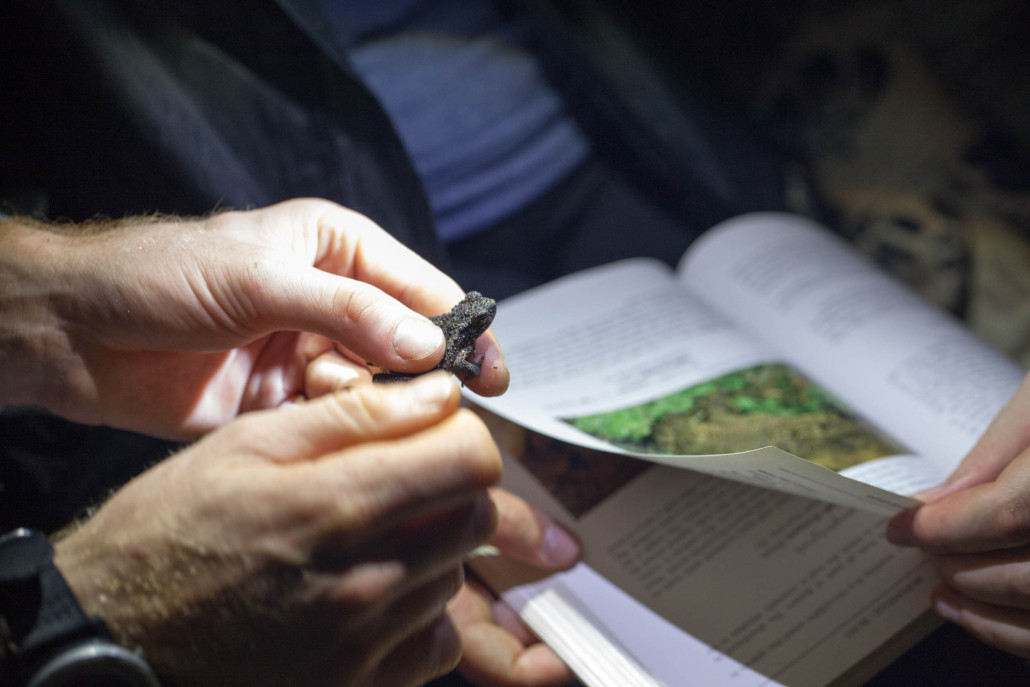
Students from the 2015 field trip practice their amphibian id skills
This field trip is different in that it’s designed to mimic the kinds of objectives and practices involved in field research expeditions. While we won’t be conducting actual research, the students will practice research techniques of the sort that would be conducted on a research expedition. they will also be living in temporary field camps built from local materials (plus a few tarpaulins), and will be eating local food, washing themselves and their clothes in the rivers, and dealing with all the hardships and having all the fun that comes with expedition life. No 4* hotels and safari tours here!
I’ll write again about the philosophy behind these expedition-style field trips once I get back from the field. In the mean time, wish us luck and think of us as we deal with sweat bees and leeches instead of cold wind and rain!

